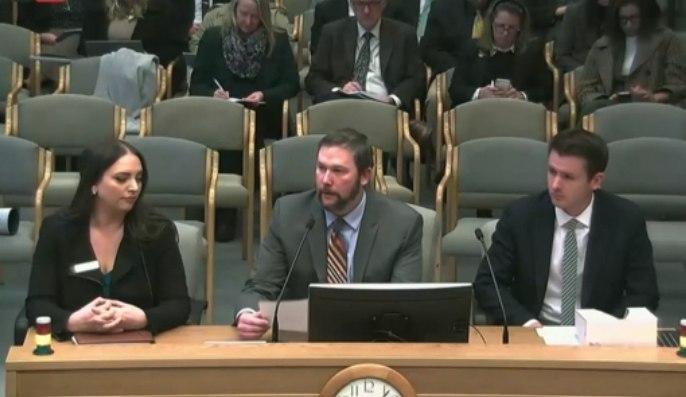
OLYMPIA, Wash. — Senate Bill 5002 didn’t make it across the finish line this year, but responsible wine consumers should keep in their rearview mirror the idea that a sizeable group of Washington state lawmakers wants to lower the legal limit of blood alcohol content to 0.05%.
The only state in the nation where 0.05% BAC is illegal is Utah, where about two-thirds of the population belong to the Church of Jesus Christ of Latter-day Saints.
In the Evergreen State, SB 5002’s primary sponsor was Sen. John Lovick, D-Mill Creek, who spent 31 years with the Washington State Patrol. Soon after it was introduced, Gov. Jay Inslee said he would sign such a bill into law.
Passage would’ve prompted the wine and hospitality industries to revisit the way they do business, and it would mean increased restrictions for wine consumers in Washington state. Both the Washington Hospitality Association and the Washington Wine Institute moved quickly, said Lane Hoss, vice president of operations for Anthony’s Restaurants.
“The public needs to be better educated on this topic,” she told me. “For one, a restaurant doesn’t know where a guest has been before they arrive. Our servers are trained to look for signs of intoxication, and there usually aren’t visible signs of intoxication at .05. For many people, that’s one drink, which they may have already had.
“We want our guests to enjoy a full dining experience, but if two people want to share a bottle of wine over a couple of hours with their meal, they couldn’t drink their second glass,” Hoss adds.
The Yakima Herald-Republic — on behalf of consumers, the tourism industry and wineries — pointed out in a Feb. 19 editorial that lawmakers in Olympia shouldn’t use Utah and its young law as justification for taking Washington state to 0.05%. And the data indicates Utah’s law isn’t as effective as some want the public to believe.
Utah suffered 48 DUI-related deaths in 2018. The next year, after its law was enacted, those fatalities plummeted to 19. No sane person will complain about those lives saved.
However, in 2020, with the 0.05% BAC standard and despite the pandemic, drunk driving resulted in 46 fatalities. It got worse in 2021, when the annual DUI Report to the Utah Legislature noted there were 61 fatalities.
“Changing the statutory BAC level to .05 has not led to a significant increase in DUI arrests to date, though arrest numbers have stabilized in the three years since the change,” the report stated.
The stabilizing of DUI arrests in the wake of the new law could also indicate that consumers are doing a better job of managing their intake before they get behind the wheel, using more ride-sharing or relying on designated drivers. In 2018, then-Walla Walla police chief Scott Bieber said, “In my over 33 years in law enforcement we’ve seen a huge decrease in drinking and driving.”
Despite the rise in DUI-related fatalities in Utah since 2019, one would bet that Idaho and its ultra-conservative state Legislature will consider a bill similar to SB 5002. After all, counties in the Gem State began to enact anti-alcohol laws in 1910 — a decade before Prohibition officially gripped the U.S. in 1920. Oregon and its Democrat-led state Legislature might come up with a bill similar to SB 5002.
Repeat offenders, extreme cases focus of testimony

As a compromise, perhaps our lawmakers will consider the model of British Columbia. Those drivers caught the first time with a BAC in the “warning” range — between 0.05% and 0.08% — face an immediate three-day driving ban and a $200 fine.
The 0.08% level is a “fail,” which is a 90-day ban, a costly 30-day vehicle impoundment and other penalties. And in the Okanagan Valley, it’s not uncommon for law enforcement to set up roadblocks in search of those who have been over-served.
A lifesaver for each state would be to adopt a 2022 recommendation by the National Transportation Safety Board — equip all new vehicles with a blood alcohol monitoring system.
This winter’s bill did prompt me to install fresh batteries in my AlcoMate Revo — a digital personal breathalyzer. Trouble is the Revo requires a 20-minute wait after eating, smoking, chewing gum or even drinking a glass of water. Even then, it states, “Do not use the Revo to determine whether to drive.” My uneducated guess is the vast majority of folks pulled over for DUI lack the sensibility to abstain from anything for 20 minutes.
It brings us back to education. How many responsible wine consumers realize the level of their impairment? Anyone with a server’s permit — I travel with cards earned for Washington state and my native state of Oregon — knows the roles of food, water, body mass, amount of alcohol and the time required for the body to process the alcohol. That clock can’t be sped up.
The drive to 0.05 would be a boon for ride-sharing apps and benefit those who live within walking distance of an enjoyable tasting room, wine bar or restaurant. In Richland, I can stroll down to Fat Olives in 20 minutes, talk wine with owner/vintner JD Nolan, support his restaurant and walk home.
As a company, Great Northwest Wine chooses to hold its competitions with lodging partners such as the historic Columbia Gorge Hotel & Spa in Hood River, Ore., the Courtyard Marriott Columbia Point in Richland, Wash., and downstream at the Clover Island Inn — the official home of the 23-year-old Platinum Awards. Our judges dinners are staged at the hotel, within walking distance of the venue or involve ride-sharing.
Despite its early bipartisan support, Rep. Andrew Barkis, R-Olympia, said members of his party quickly heard the hospitality industry’s concerns about SB 5002. I sent a personalized note to my state senator.
“Ding dong the Witch is dead!” read the celebratory update from the WHA on March 9. However, restaurants, wineries, their employees and customers must remain engaged.
“This issue is going to be coming back,” Hoss predicted.
And she’s right. According to the Legislative Information Center in Olympia, because 2023 is the first year of a biennium, the bill will be re-introduced for next session.
In the meantime, Senate Bill 5002 serves as another reminder to give serious thought about enjoying more than a single glass of wine before getting behind the wheel too quickly. Going to a friend’s home? Step up your game with that bottle you bring to the backyard barbecue or dinner party.
For those who are driving, make that glass count. Life is too short for vin ordinare.

There is no impairment at 0.08% much less 0.05%. Impairment starts at approx 0.1% This is an attempt to make up fines lost by people using rideshare and generally being more responsible.